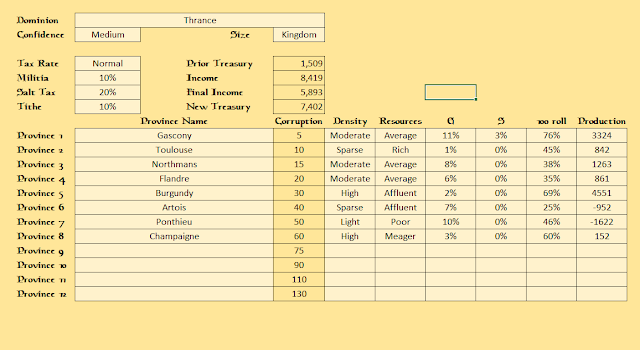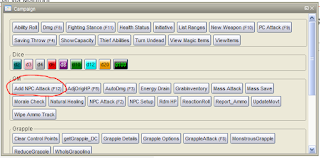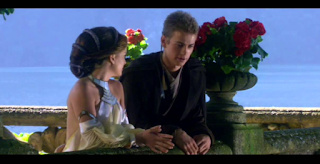Why You Should Consider Using a VTT
VTTs have been around awhile, but from perusing various forum and blog posts, I get the impression that many gamers are unaware of their benefits. They're not just for virtual gaming sessions. They work extremely well for face to face games. So well, in fact, that you might want to reconsider investing in miniatures, terrains, etc.
First off, I'll admit that there are a couple of big downsides to VTTs. If you use a PC at work all day, then staring at a screen as part of your RPG hobby may not be appealing. For me, this is definitely true towards Friday, when my eyes are pretty tired after finishing work. Second, the technical issues can be intimidating. I use Maptool, and Maptool connectivity can leave much to be desired. Plus, if you're using another software for voice, you have to deal with dropped calls and loss in sound quality.
Having said all that, the benefits of a VTT outweigh the negatives. When they work (and I should note that the majority of the time, these things do work pretty well), boy do they pull their weight! When you have technical problems, I've always found that the online communities are charitable with their time to help you find your way. So, what are the pluses to this kind of software?
First off, I'll admit that there are a couple of big downsides to VTTs. If you use a PC at work all day, then staring at a screen as part of your RPG hobby may not be appealing. For me, this is definitely true towards Friday, when my eyes are pretty tired after finishing work. Second, the technical issues can be intimidating. I use Maptool, and Maptool connectivity can leave much to be desired. Plus, if you're using another software for voice, you have to deal with dropped calls and loss in sound quality.
Having said all that, the benefits of a VTT outweigh the negatives. When they work (and I should note that the majority of the time, these things do work pretty well), boy do they pull their weight! When you have technical problems, I've always found that the online communities are charitable with their time to help you find your way. So, what are the pluses to this kind of software?
- You don't need physical mini's anymore. There's tons of downloadable images on the web to use for counters, and you can create as many instances of a figure as you need.
- Map sizes are infinite. Forget about restricting gaming action to an unrolled vinyl matt. You have room to make your encounters as big as they need to be.
- Mapping is definitely easier. This might be a minus for certain groups, who like to insist that players physically create maps on their own graph paper. It's an aspect of play I've never cared for myself. I'm definitely on the 'let the computer do the grunt work' side of the ledger.
- Player vision is restricted to whatever light source they're using and, at least with Maptool, what a player sees is limited to whatever that person's character token reveals! How exciting is that? What you as a player can see will often differ from what your party members see. And, whatever you reveal will vary by light source. Try that on a gaming matt!
- Fog Of War! Related the bullet point above, but the idea here is that the GM can move around some goblin tokens following your party through the dungeon and ... you won't know till it's too late! Suddenly spells like Wizard Eye take on renewed significance.
- Die rolls are automated. Again, something that might be a minus for certain folks. Personally, I've found that computer generated random numbers are truly random, whereas I see physical dice rolling the same numbers way too often. Also, with dice pool games, like West End's d6 products, combat often slowed down while PCs summed up their results, especially when those PCs were highly experienced. Not an issue with VTTs at all. Even exploding dice, like the Wild Die that West End introduced in their Star Wars d6 game, is easily handled.
- Players can interact with the actual published maps. Increasingly, gaming maps are full-colored works of art. It seems criminal that only the GM gets to see them. And, it's easy to take an electronic copy of a published module, grab the map, and get it into your VTT.
- Lose the paper! You can keep a lot of information about your campaign's characters on their tokens. It's easy in Maptool to establish a set of properties for all character tokens, and then to populate those properties as you need.
- Automate!! Coding is fun (well, maybe not to everyone). Many VTTs have a rich library of macro functionality which can be tapped to speed gameplay up dramatically. Even if you don't know how to code, using Maptool as an example again, there are many frameworks already available which are free for anyone to use. These frameworks are bundles of macros which are geared towards a specific ruleset, such as D&D 5th edition. Have played 3rd edition D&D in person and via Maptool, I can attest many times over that the Maptool gameplay was lightspeed in comparison.
To expand a bit on the last point, for the past several months, I've been building a framework for the OSR game, Basic Fantasy RPG. It's a much simpler game compared to Pathfinder or even D&D 5th edition. But, even so, it's been great using the framework. With a single click of a button, I have attack & damage rolls for all attack forms for a monster. I never have to open the rulebook to check Saving Throw values. Tracking spells memorized and cast is super easy.
For busy adults, time and effort are valuable commodities. VTTs definitely provide savings for both, but they also yield a flat-out superior gaming experience.



Comments
Post a Comment